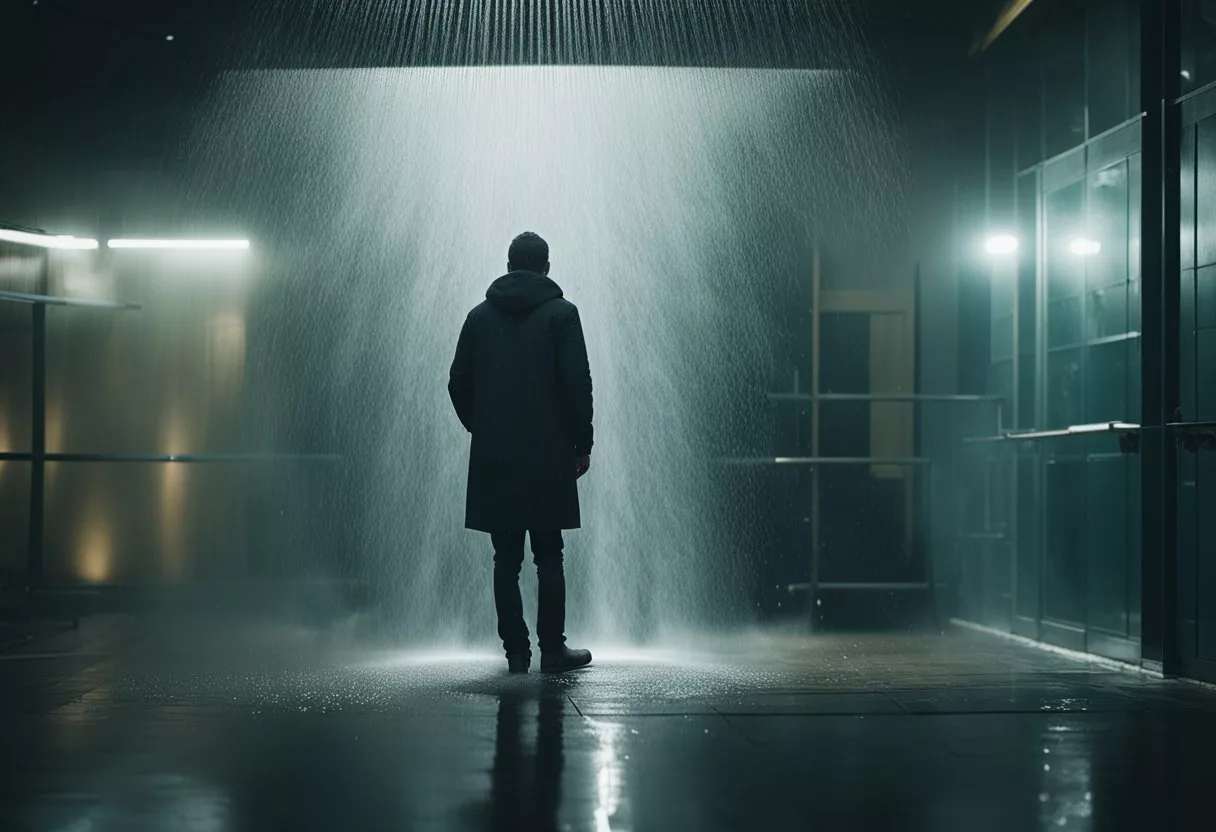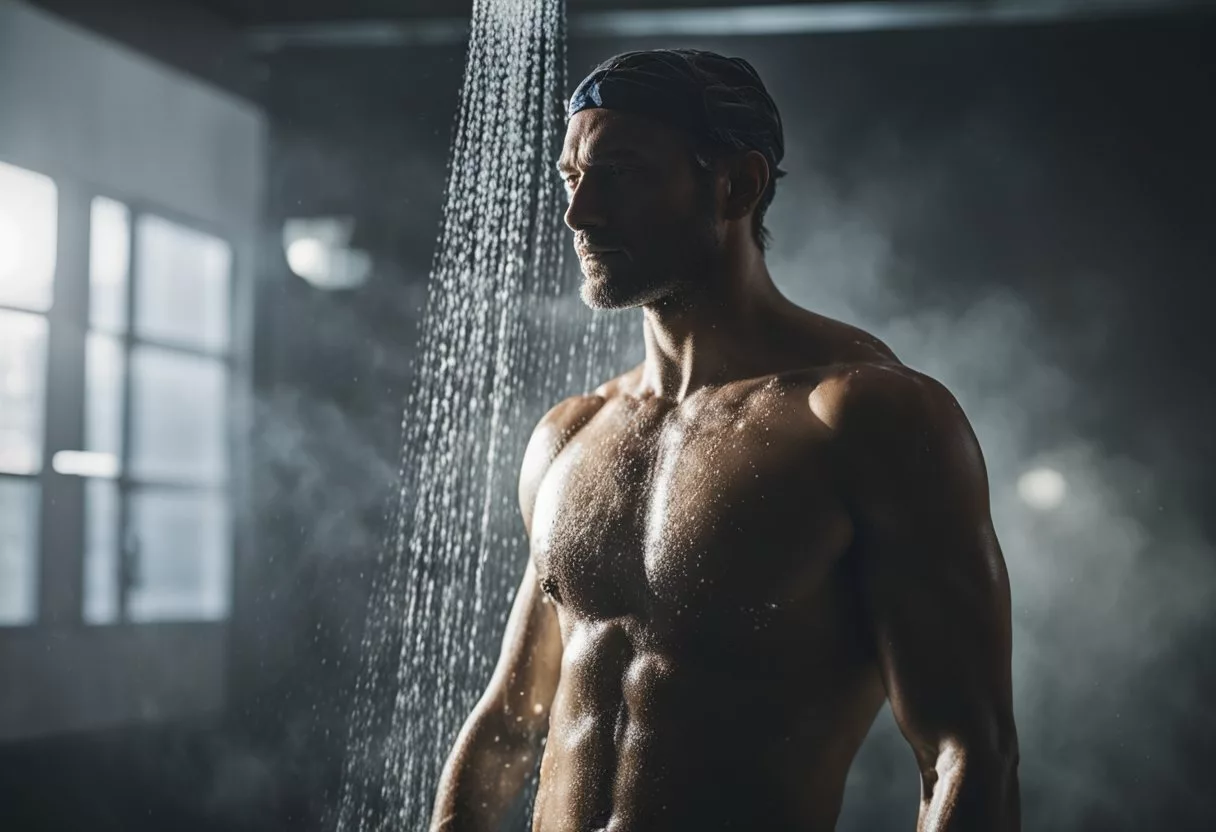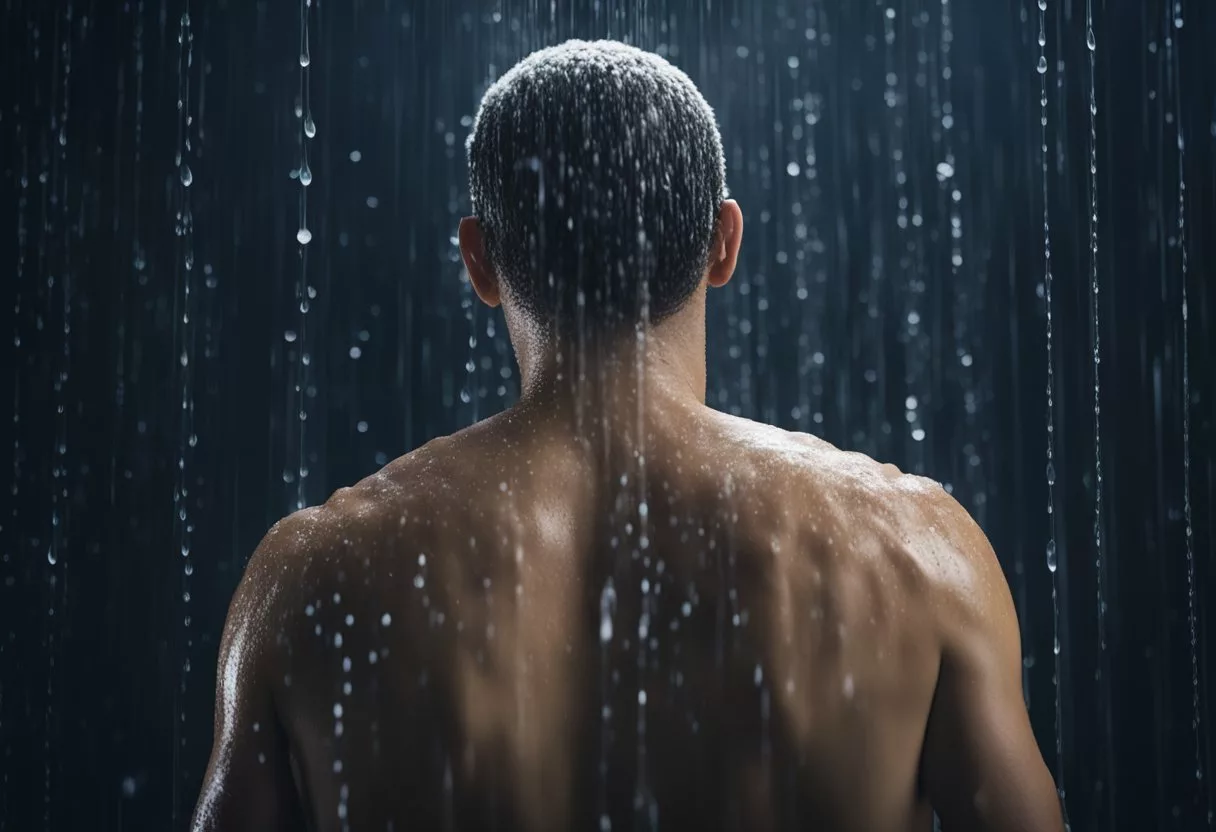aking a cold shower every day may seem like a daunting task, especially during the colder months. However, research has suggested that it can have numerous health benefits. In this article, we will explore the effects that cold showers have on the body and what science has to say about it.

Cold showers have been found to boost the immune system, increase circulation, and improve mood. Additionally, they may help with muscle recovery, relieve depression symptoms, and even speed up metabolism. But what exactly happens to the body when it is exposed to cold water on a regular basis? And are these benefits supported by scientific research?
By examining the latest studies on the topic, we can gain a better understanding of how cold showers affect the body and what potential benefits they may offer. From changes in the nervous system to alterations in hormone levels, there is much to explore when it comes to the effects of cold showers on our health. So, let’s dive in and explore the science behind this intriguing practice.
Understanding Cold Showers

History and Popularity of Cold Therapy
Cold therapy has been used for centuries in many cultures for its therapeutic benefits. In ancient Greece, Hippocrates used cold baths for their healing properties. In Japan, the practice of cold water immersion, known as “shinrin-yoku,” has been used for centuries as a way to improve overall health and well-being. In recent years, the popularity of cold therapy has increased with the rise of cryotherapy and cold water immersion.
One person who has popularized the benefits of cold exposure is Wim Hof, also known as the “Iceman.” Hof has gained attention for his ability to withstand extreme cold temperatures and his method of cold exposure, which involves breathing exercises and cold water immersion. While his methods have not been scientifically proven, many people have reported benefits from following his techniques.
Scientific Basis of Cold Exposure
Cold exposure, whether through cold water immersion or cryotherapy, has been shown to have several potential health benefits. One of the most significant benefits is the activation of brown adipose tissue (BAT), which is a type of fat that burns calories to generate heat. Cold exposure can also increase the production of norepinephrine, a hormone that can improve mood and focus.
Additionally, cold exposure has been shown to improve circulation, reduce inflammation, and boost the immune system. Some studies have even suggested that cold exposure may have anti-cancer properties.
It is important to note that while cold exposure has potential benefits, it can also be dangerous for certain individuals. People with heart conditions or low blood pressure should avoid cold water immersion, as it can put additional stress on the heart. It is also important to gradually acclimate to cold exposure to avoid hypothermia or other cold-related injuries.
In summary, cold exposure has a long history of use for its therapeutic benefits. While the scientific basis of cold exposure is still being studied, many people have reported positive effects from incorporating cold therapy into their routine. However, it is important to exercise caution and consult with a healthcare professional before beginning any new wellness practice.
Physiological Effects on the Body

Impact on Circulation
Taking a cold shower can have a positive impact on circulation. When exposed to cold water, the body responds by constricting blood vessels, which helps to increase blood pressure and improve circulation. This process can also help to flush out toxins from the body, which can improve overall health.
Influence on the Immune System
Cold showers may also have a positive impact on the immune system. According to a study published in the International Journal of Circumpolar Health, exposure to cold water can help to increase the number of leukocytes, which are white blood cells that help to fight infection and disease. This increase in leukocytes can help to boost the immune system and improve overall health.
Changes in Metabolism and Weight Loss
Taking cold showers may also help to boost metabolism and aid in weight loss. When exposed to cold water, the body has to work harder to maintain its core temperature, which can increase the metabolic rate. This increase in metabolism can help to burn more calories and aid in weight loss.
Effects on Muscle Soreness and Recovery
Cold showers can also help to reduce muscle soreness and aid in recovery after exercise. Exposure to cold water can help to reduce inflammation and swelling in the muscles, which can help to reduce soreness and improve recovery time.
Modulation of the Nervous System
Taking cold showers can also have an impact on the nervous system. Exposure to cold water can help to activate the sympathetic nervous system, which is responsible for the body’s fight or flight response. This activation can help to increase the release of noradrenaline, which can improve mood and energy levels. Cold showers can also help to improve the function of the nervous system by increasing the transmission of electrical impulses.
Overall, taking cold showers can have a number of physiological benefits for the body. From improving circulation and boosting the immune system to aiding in weight loss and reducing muscle soreness, there are many reasons to consider incorporating cold showers into your daily routine.
Mental and Emotional Health Benefits

Taking a cold shower every day can have a positive impact on mental and emotional health. This section will explore the various ways in which cold showers can enhance mental clarity, improve mood, and reduce stress.
Cold Showers and Stress Reduction
Stress is a common problem that affects many people. Cold showers have been shown to reduce stress by stimulating the production of norepinephrine, a hormone that helps the body deal with stress. This hormone is released in response to the shock of cold water, which triggers the body’s fight or flight response. This response helps to reduce stress and increase resilience.
Influence on Mood and Depression
Cold showers have also been shown to have a positive influence on mood and depression. According to a study published in the journal Medical Hypotheses, taking cold showers can help alleviate symptoms of depression. The study suggests that the shock of cold water can activate the sympathetic nervous system and increase the release of endorphins, which are natural mood enhancers.
Enhancement of Mental Clarity and Focus
Cold showers have been shown to enhance mental clarity and focus. Cold water stimulates the release of noradrenaline, a neurotransmitter that helps to improve brain function, memory, and attention. This can lead to improved productivity and performance throughout the day.
In summary, taking a cold shower every day can have a positive impact on mental and emotional health. Cold showers can help reduce stress, improve mood, and enhance mental clarity and focus.
Skin and External Health Benefits

Effect on Skin Health
Cold showers can have a positive effect on skin health. Cold water can help to reduce inflammation, which can lead to a reduction in the appearance of redness and puffiness. The cold temperature can also help to tighten pores, which can make skin appear smoother and more youthful.
In addition, cold water can help to improve circulation, which can lead to a healthier, more radiant complexion. Improved circulation can also help to deliver vital nutrients and oxygen to the skin, which can help to promote healing and repair.
Cold Showers as a Treatment for Skin Conditions
Cold showers have been used as a treatment for certain skin conditions, such as eczema and psoriasis. The cold water can help to reduce inflammation and soothe itching, which can provide relief for those suffering from these conditions.
However, it is important to note that cold showers may not be suitable for everyone, and those with very sensitive skin may find that the cold water exacerbates their condition. It is always best to consult with a dermatologist before trying any new treatments for skin conditions.
Overall, cold showers can provide a range of benefits for skin health, including reducing inflammation, improving circulation, and providing relief for certain skin conditions.
Potential Risks and Considerations

When Cold Showers May Not Be Beneficial
While cold showers can provide numerous health benefits, they may not be suitable for everyone. Individuals who experience discomfort or pain while taking cold showers may want to discontinue the practice. It is also important to note that cold showers may not be the best option for individuals with heart disease or high blood pressure, as the body’s reaction to cold water can put added stress on the heart and lead to an increased risk of heart attack or stroke.
Individuals who are undergoing cancer treatment or taking certain medications should consult with their healthcare provider before taking cold showers, as the sudden temperature change may have adverse effects on their treatment. In addition, individuals with diabetes or bipolar disorder may want to avoid cold showers, as these conditions can affect the body’s ability to regulate temperature.
Understanding the Risks for Specific Health Conditions
For individuals with heart disease, cold showers may not be recommended as the sudden temperature change can cause the blood vessels to constrict, leading to an increased risk of heart attack or stroke. Similarly, individuals with high blood pressure may want to avoid cold showers, as the sudden temperature change can cause blood pressure to spike.
Individuals undergoing cancer treatment or taking certain medications may also want to avoid cold showers, as the sudden temperature change can cause the blood vessels to constrict, potentially interfering with their treatment. In addition, individuals with diabetes may want to avoid cold showers, as the sudden temperature change can cause blood sugar levels to fluctuate.
It is important to note that while cold showers can provide numerous health benefits, they may not be suitable for everyone. Individuals with specific health conditions or concerns should consult with their healthcare provider before incorporating cold showers into their daily routine. For those who do decide to take cold showers, it is recommended to start with warm water and gradually decrease the temperature to avoid any discomfort or shock to the body.
Comparative Analysis

Cold Showers vs. Warm Showers
Cold showers and warm showers have different effects on the body. Warm showers are relaxing and can help ease muscle tension, while cold showers can increase alertness and energy levels. Cold showers have been shown to improve circulation, reduce inflammation, and boost the immune system.
In contrast, warm showers can cause the skin to become dry and itchy, and can even lead to rashes or other skin irritations. Warm showers can also cause the body to become too relaxed, making it difficult to wake up and feel alert.
Cold Showers vs. Ice Baths
Cold showers and ice baths are similar in that they both involve cold water exposure. However, ice baths are typically much colder than cold showers, and are often used as a form of therapy for athletes or people with injuries.
Ice baths have been shown to reduce inflammation and muscle soreness, and can even speed up recovery time after exercise. However, they can also be painful and uncomfortable, and may not be suitable for everyone.
Cold showers, on the other hand, are less extreme than ice baths and can be more easily incorporated into a daily routine. They offer many of the same benefits as ice baths, such as improved circulation and reduced inflammation, but without the discomfort.
In summary, both cold showers and warm showers have their benefits and drawbacks, and the choice between the two ultimately depends on personal preference and individual needs. Ice baths are a more extreme form of cold water therapy that can be beneficial for some, but may not be appropriate for everyone.
Practical Applications and Recommendations

Incorporating Cold Showers into Daily Routine
Incorporating cold showers into a daily routine can be a challenge, but it can be done with the right mindset and preparation. One way to start is by gradually reducing the temperature of the water during a regular shower until it reaches a cold temperature. Another way is to start with a quick cold blast at the end of a regular shower and gradually increase the duration over time.
Optimizing Duration and Frequency for Health Benefits
The duration and frequency of cold showers can vary depending on individual preferences and goals. For those looking to improve immunity and alertness, a cold shower lasting 2-3 minutes, 2-3 times per week may be sufficient. For those looking to optimize weight loss and workout recovery, a cold shower lasting 5-10 minutes, 3-4 times per week may be more effective.
Cold Shower Techniques for Athletes and Fitness Enthusiasts
Cold showers can be a useful tool for athletes and fitness enthusiasts looking to improve performance and recovery. One technique is to take a cold shower immediately after a workout to reduce inflammation and speed up recovery. Another technique is to alternate between hot and cold showers, known as contrast showers, to improve circulation and promote relaxation.
Research suggests that cold showers may have a range of health benefits, including improved immunity, weight loss, and well-being. However, it is important to note that these benefits are not guaranteed and may vary depending on individual factors such as age, fitness level, and overall health.
Incorporating cold showers into a daily routine may be challenging, but it can be done gradually over time. Optimizing the duration and frequency of cold showers may also help maximize the potential health benefits. For athletes and fitness enthusiasts, cold showers can be a useful tool for improving performance and recovery.
Overall, cold showers can be a safe and effective way to promote health and well-being when used properly. As with any new health regimen, it is recommended to consult with a healthcare professional before starting.